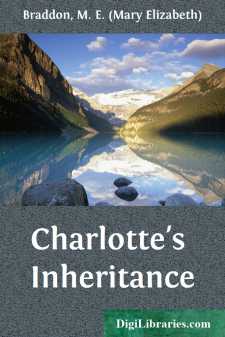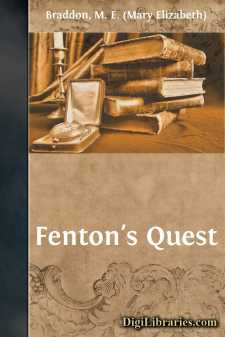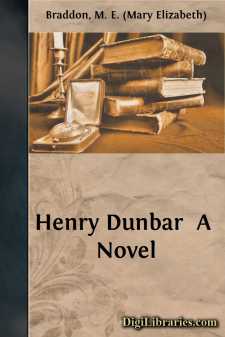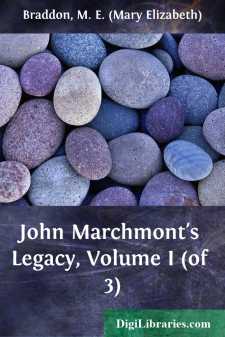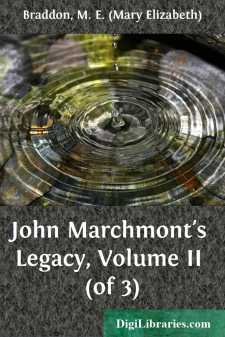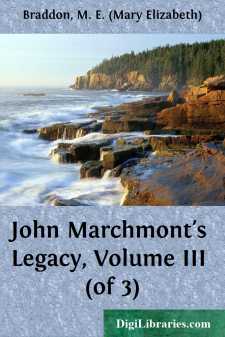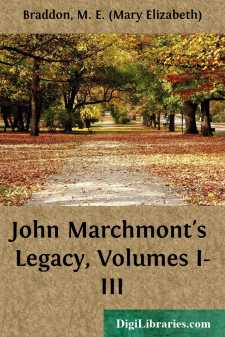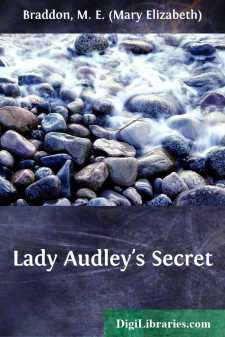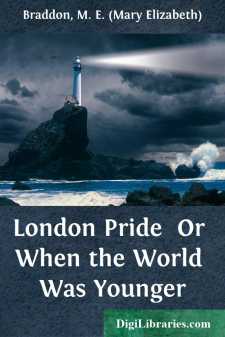Categories
- Antiques & Collectibles 13
- Architecture 36
- Art 48
- Bibles 22
- Biography & Autobiography 813
- Body, Mind & Spirit 142
- Business & Economics 28
- Children's Books 17
- Children's Fiction 14
- Computers 4
- Cooking 94
- Crafts & Hobbies 4
- Drama 346
- Education 46
- Family & Relationships 57
- Fiction 11829
- Games 19
- Gardening 17
- Health & Fitness 34
- History 1377
- House & Home 1
- Humor 147
- Juvenile Fiction 1873
- Juvenile Nonfiction 202
- Language Arts & Disciplines 88
- Law 16
- Literary Collections 686
- Literary Criticism 179
- Mathematics 13
- Medical 41
- Music 40
- Nature 179
- Non-Classifiable 1768
- Performing Arts 7
- Periodicals 1453
- Philosophy 64
- Photography 2
- Poetry 896
- Political Science 203
- Psychology 42
- Reference 154
- Religion 513
- Science 126
- Self-Help 84
- Social Science 81
- Sports & Recreation 34
- Study Aids 3
- Technology & Engineering 59
- Transportation 23
- Travel 463
- True Crime 29
M. E. (Mary Elizabeth) Braddon
Mary Elizabeth Braddon was a prolific English novelist best known for her sensation novel *Lady Audley's Secret*, published in 1862, which became a bestseller and established her reputation. She wrote over 80 novels during her career, often exploring themes of crime, identity, and societal expectations, making significant contributions to the genre of sensation fiction. Braddon's work is noted for its complex plots and strong female characters, reflecting her interest in the roles and struggles of women in Victorian society.
Author's Books:
Sort by:
CHAPTER I. THE HOUSE IN BLOOMSBURY. "What about?" There are some houses whereof the outward aspect is sealed with the seal of respectability—houses which inspire confidence in the minds of the most sceptical of butchers and bakers—houses at whose area-gates the tradesman delivers his goods undoubtingly, and from whose spotless door-steps the vagabond children of the neighbourhood recoil as...
more...
CHAPTER I. LENOBLE OF BEAUBOCAGE. In the days when the Bourbon reigned over Gaul, before the "simple, sensuous, passionate" verse of Alfred de Musset had succeeded the débonnaire Muse of Béranger in the affections of young France,—in days when the site of the Trocadero was a remote and undiscovered country, and the word "exposition" unknown in the Academic dictionary, and the Gallic...
more...
CHAPTER I THE COMMON FEVER A warm summer evening, with a sultry haze brooding over the level landscape, and a Sabbath stillness upon all things in the village of Lidford, Midlandshire. In the remoter corners of the old gothic church the shadows are beginning to gather, as the sermon draws near its close; but in the centre aisle and about the pulpit there is broad daylight still shining-in from the wide...
more...
CHAPTER I. AFTER OFFICE HOURS IN THE HOUSE OF DUNBAR, DUNBAR, AND BALDERBY. The house of Dunbar, Dunbar, and Balderby, East India bankers, was one of the richest firms in the city of London--so rich that it would be quite in vain to endeavour to describe the amount of its wealth. It was something fabulous, people said. The offices were situated in a dingy and narrow thoroughfare leading out of King...
more...
CHAPTER I. THE MAN WITH THE BANNER. The history of Edward Arundel, second son of Christopher Arundel Dangerfield Arundel, of Dangerfield Park, Devonshire, began on a certain dark winter's night upon which the lad, still a schoolboy, went with his cousin, Martin Mostyn, to witness a blank-verse tragedy at one of the London theatres. There are few men who, looking back at the long story of their...
more...
CHAPTER I. MARY'S LETTER. It was past twelve o'clock when Edward Arundel strolled into the dining-room. The windows were open, and the scent of the mignionette upon the terrace was blown in upon the warm summer breeze. Mrs. Marchmont was sitting at one end of the long table, reading a newspaper. She looked up as Edward entered the room. She was pale, but not much paler than usual. The...
more...
CHAPTER I. CAPTAIN ARUNDEL'S REVENGE. Edward Arundel went back to his lonely home with a settled purpose in his mind. He would leave Lincolnshire,—and immediately. He had no motive for remaining. It may be, indeed, that he had a strong motive for going away from the neighbourhood of Lawford Grange. There was a lurking danger in the close vicinage of that pleasant, old-fashioned country mansion,...
more...
CHAPTER I.THE MAN WITH THE BANNER. The history of Edward Arundel, second son of Christopher Arundel Dangerfield Arundel, of Dangerfield Park, Devonshire, began on a certain dark winter's night upon which the lad, still a schoolboy, went with his cousin, Martin Mostyn, to witness a blankâverse tragedy at one of the London theatres. There are few men who, looking back at the long story of their...
more...
CHAPTER I. LUCY. It lay down in a hollow, rich with fine old timber and luxuriant pastures; and you came upon it through an avenue of limes, bordered on either side by meadows, over the high hedges of which the cattle looked inquisitively at you as you passed, wondering, perhaps, what you wanted; for there was no thorough-fare, and unless you were going to the Court you had no business there at all. At...
more...
CHAPTER I. A HARBOUR FROM THE STORM. The wind howled across the level fields, and flying showers of sleet rattled against the old leathern coach as it drove through the thickening dusk. A bitter winter, this year of the Royal tragedy. A rainy summer, and a mild rainy autumn had been followed by the hardest frost this generation had ever known. The Thames was frozen over, and tempestuous winds had...
more...



